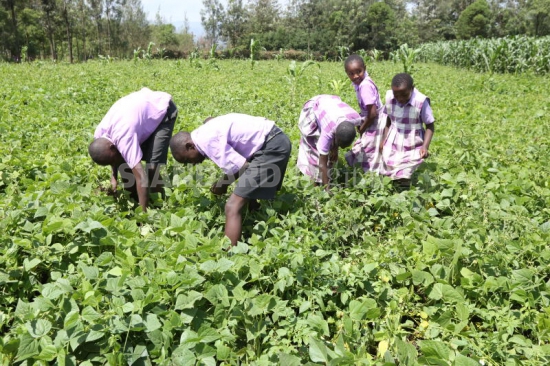
NAKURU: Agri-business is now the in-thing, and nearly everybody wants a piece of the farm. Schools have not been left behind. The wave of farming for money is sweeping across schools with pupils embracing this new cloud of change. Schools have come up with brilliant ideas on how to make money from the soil and in the process impart farming skills in the young minds.
Welcome to Kiamaina Primary School in Bahati, Nakuru County where pupils are not only gaining skills to be future farmers but they are also earning from their toil. When Smart Harvest team visits the school, as they approach the administration block, they spot the lush green field bursting with life. From a distance, we spot a group of pupils tending to some crops. The public school with a population of 2,200 pupils boasts a model farm with crops, rabbits, dairy cow and vegetables. The project which sits on a five-acre plot, has transformed the school into a centre for agriculture that has seen pupils from other schools tour the farm to learn best practice in farming.